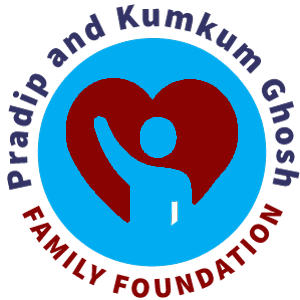Social Justice & Inclusion

Pradip and Kumkum Ghosh Family Foundation understands that Marginalised communities often find themselves excluded from having a voice in the development agenda. Exclusion and discrimination go hand in hand and the result is the growing alienation of underserved sections of society, such as scheduled castes, scheduled tribes, religious minorities, women, etc, from the mainstream. Recognising the widespread malaise of this exclusion and discrimination against marginalised communities, and the specific vulnerabilities that women, children, youth, Dalits, Adivasis face with respect to access to education, employment and justice, the Foundation aspires to bring together all the stakeholders, including those excluded communities, the state, civil society organisations and others to build access to social justice systems, promote good practices, strengthen communities and institutions, and reform the juvenile and criminal justice system. Foundation aspires to spread Legal Literacy and support communities with Legal Aid services.
Facts and Challenges
We know that the root cause for some of the key developmental challenges in the country remains discrimination based on gender, sexuality, religion, caste, and socio-economic background. Article 15 of the Indian Constitution prohibits the discrimination of any individual by the state on the above grounds. However, the ground reality is very different. Marginalised communities face discrimination in their attempts to access public goods and services, Basic entitlements, Housing, Education, Adequate health services,Adequate child protection mechanisms and Justice system. This exclusion results in myriad social ills that plague these underprivileged communities, including a larger percentage of incarceration, unsafe environments for women and children, and other socially excluded communities. Poverty, physical and mental disabilities, gender and other context-specific features exacerbate the situation, making social justice and inclusion a complex and intersectional challenge.
Planned Approach
Foundation approaches social problems with a holistic perspective, striving to understand root causes and looking at solutions with an intersectional understanding. Foundation uses cross-linkages with other portfolios including Education, Health, Skilling, Livelihoods to support the Social Justice portfolio. For example, in places where violence against children is high, the Foundation can incorporate an integrated approach through schools and communities to reduce violence against children, child sexual abuse, etc. Similarly, the line between migration, stressed migration and human trafficking is very thin; hence, an initiative that seeks to curb stressed migration will also help in reducing human trafficking.
The goal of the Foundation’s strategy is to provide marginalised communities access to justice and dignity, reduce violence against women and children, and to build leadership and give voice to excluded communities.
Supporting UN Sustainable Development Goals (SDGs) :
Foundation supports and tries to achieve the UN SDG 16 – Peace, Justice and Strong Institutions.
